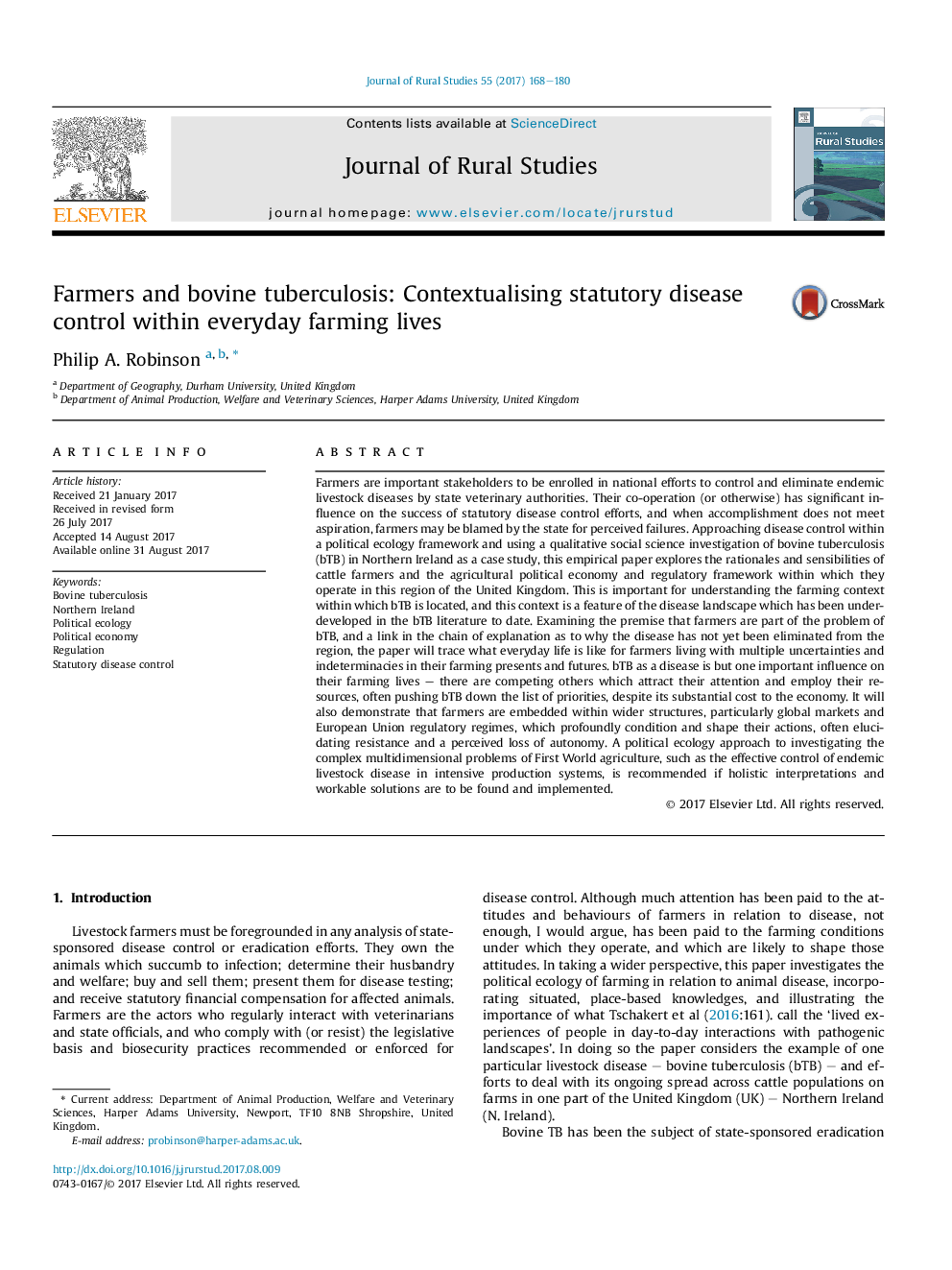| Article ID | Journal | Published Year | Pages | File Type |
|---|---|---|---|---|
| 6459945 | Journal of Rural Studies | 2017 | 13 Pages |
â¢Farmers are often blamed by state actors for ongoing disease spread.â¢Farmer attitudes and behaviours must be better understood to provide context.â¢Everyday life involves the pressures of an amalgam of politico-economic factors.â¢Efforts to eradicate bovine TB are hampered by poor state-farmer relations.â¢A political ecology of bovine TB provides context to the disease control paradigm.
Farmers are important stakeholders to be enrolled in national efforts to control and eliminate endemic livestock diseases by state veterinary authorities. Their co-operation (or otherwise) has significant influence on the success of statutory disease control efforts, and when accomplishment does not meet aspiration, farmers may be blamed by the state for perceived failures. Approaching disease control within a political ecology framework and using a qualitative social science investigation of bovine tuberculosis (bTB) in Northern Ireland as a case study, this empirical paper explores the rationales and sensibilities of cattle farmers and the agricultural political economy and regulatory framework within which they operate in this region of the United Kingdom. This is important for understanding the farming context within which bTB is located, and this context is a feature of the disease landscape which has been under-developed in the bTB literature to date. Examining the premise that farmers are part of the problem of bTB, and a link in the chain of explanation as to why the disease has not yet been eliminated from the region, the paper will trace what everyday life is like for farmers living with multiple uncertainties and indeterminacies in their farming presents and futures. bTB as a disease is but one important influence on their farming lives - there are competing others which attract their attention and employ their resources, often pushing bTB down the list of priorities, despite its substantial cost to the economy. It will also demonstrate that farmers are embedded within wider structures, particularly global markets and European Union regulatory regimes, which profoundly condition and shape their actions, often elucidating resistance and a perceived loss of autonomy. A political ecology approach to investigating the complex multidimensional problems of First World agriculture, such as the effective control of endemic livestock disease in intensive production systems, is recommended if holistic interpretations and workable solutions are to be found and implemented.
